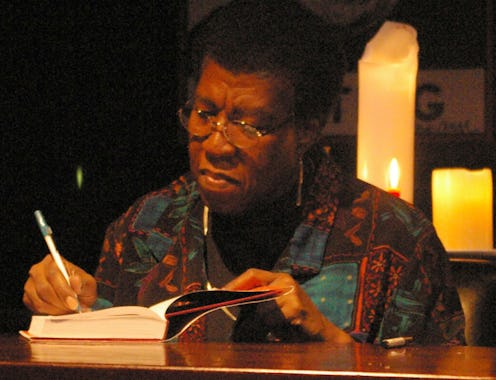Books
Does Science Fiction Have A Bias Problem?

Bias in literary magazines has been a subject of discussion for some time now — and according to a report from Fireside Fiction, speculative fiction magazines show a definite anti-black bias when it comes to the number of stories they put forth. Which is unfortunate for any number of reasons.
Running the numbers, Fireside's report indicates that 2,039 total original works of fiction were published in 63 science fiction and fantasy publications in 2015. Trying to determine the racial or ethnic identity of authors can be difficult and often relies on self-identification, but based on their best analysis, of those 2,039 stories, only 38 were written by black authors.
Which amounts to a total of around 1.9 percent.
Given that the population of the United States is 13.2 percent black, according to Census data, 1.9 percent is almost unbelievably low. And, in fact, it's also fantastically unlikely to occur on its own. Fireside ran the numbers and found that the odds of this percentage randomly occurring on its own, without outside influence, were worse than the odds of winning the lottery. In other words, a number like this doesn't just happen, not unless something is going on.
Of course, we can't know for sure that the number of stories by black authors submitted to science fiction and fantasy magazines is proportional to the number of black people in the U.S. However, Fireside notes that some individual publications have a much higher number of black authors in their pages, implying that these authors are out there in much higher numbers than the industry averages would suggest. In Terraform, for instance, around eight to nine percent of fiction authors published are black.
So if black authors really made up only two percent of submissions, it would be unlikely to find publications with such a high percentage.
Black authors have been writing science fiction and fantasy for as long as the genre has existed. Around the same time the Lord of the Rings was published, black authors like W.E.B. DuBois and George Schuyler were using science fiction as a vehicle to explore race in America. As the 20th century progressed, Octavia Butler, a black woman, became one of the most influential early voices in modern science fiction. And today you can find black authors like N.K. Jemisin and Nnedi Okorafor blazing new ground in speculative fiction.
But despite the long history of black people in the U.S. writing science fiction and fantasy, it seems that authors early in their careers are often shut out of publications.
"Having published short fiction helps a writer expose their ideas to the wider community and build an audience, a brand, and a foundation from which to grow their careers," Fireside explains in their report. "The field of short science fiction and fantasy — at least U.S. publications, which make up the bulk of the field — is essentially not publishing black writers. This locks them out of this valuable process."
And looking at the numbers makes clear that this is no accident. "Speculative short fiction publishing is rife with antiblackness," they write, "and white speculative fiction writers and publishers need to stop pretending otherwise."
Images: Wikimedia Commons